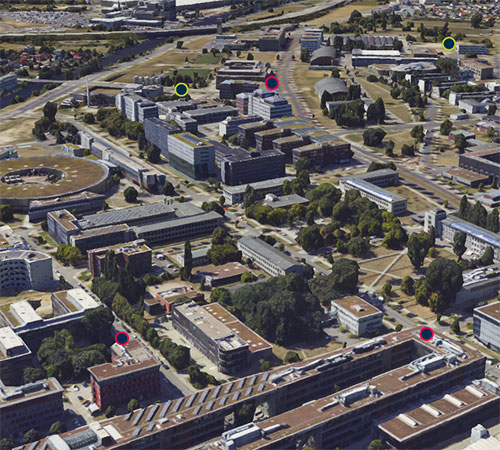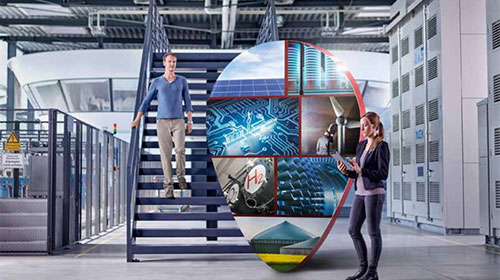Sustainable energy and environmental technology
The capital region is chock full of energy! Berlin-Brandenburg is a production location and groundbreaking research region for sustainable energy and environmental technologies.
Locational advantages
- Numerous research institutes, universities and colleges carry out first-class research and teaching in all areas of energy and environmental technology.
- Brandenburg is one of Europe's leading regions in the expansion and system integration of renewable energies.
- As a capital of digitization, Berlin is giving an important boost to the continuation of the energy transformation, which is increasingly based on networking, sector coupling, and new business models.
- Berlin offers attractive conditions and the best support for your company - whether you are setting up or expanding.
- On the way to a sustainable economy, Berlin is guided by the 17 Sustainable Development Goals of the United Nations (UN) in order to advance the Capital region economically, socially and ecologically.
Energy technology in the capital is comprised of the industries, among others:
- Energy grids and storage
- Renewable energy
- Energy efficiency
- Battery technologies
- Hydrogen economy
- Turbomachinery and power plant engineering
The environmental technology sector includes:
- Sustainable water management
- Circular economy
- Material and resource efficiency
Leading in Science and Research
In Berlin and Brandenburg, around 30 scientific institutions are working on energy-related topics:
- Technische Universität Berlin (including renewable energies, energy networks and storage, environmental technologies)
- Brandenburg University of Technology Cottbus–Senftenberg (power plant technology, biomass, power grids, hydrogen)
- Universities in Berlin, Wildau, Brandenburg an der Havel, and Eberswalde
The most important non-university research institutes include:
- Helmholtz-Zentrum Berlin
- Leibniz Institute for High Performance Microelectronics (IHP)
- Helmholtz Center Potsdam - German Research Center for Geosciences (GFZ)
- Potsdam Institute for Climate Impact Research (PIK)
- Fraunhofer Institute for Open Communication Systems FOKUS
- Fraunhofer Institute for Telecommunications, Heinrich-Hertz-Institut, HHI
- Fraunhofer Institute for Applied Polymer Research IAP
- Fraunhofer Research Institution for Energy Infrastructures and Geothermal Systems IEG
- Fraunhofer Institute for Production Systems and Design Technology (IPK)
- Fraunhofer Institute for Reliability and Microintegration IZM
- Reiner Lemoine Institut gGmbH RLI







